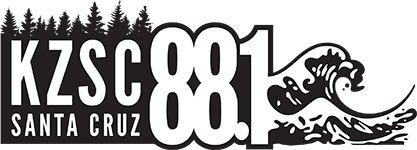By John Malkin
Diane Patterson’s new album – Satchel of Songs – was released on March 8, 2022, International Women’s Day. It’s her 6th studio album and continues her celebration of life and respect for indigenous cultures and includes guest appearances by vocalists Ani DiFranco and Alice DiMicele and kora player Gordon Hellegers. In Spring, 2019 Patterson toured with Ani DiFranco and more recently they became neighbors in New Orleans.
Patterson was born in San Diego and raised in Red Bluff which she describes as, “a little shitkicker town in Northern Cal.” She went to U.C. Davis where she started performing music and later lived in Santa Cruz and Mendocino. Patterson has often performed in Sweden, Denmark and Germany and has another Scandinavian tour planned for April. John Malkin recently spoke with Patterson about her Satchel of Songs.
SATCHEL OF SONGS
Q: “Congratulations on the new album. Tell me about putting this one together.”
A: “I recorded most of the album in New Orleans at Ani DiFranco and her husband Mike’s (Napolitano) studio and then we sent off tracks to different people,” Patterson explained. “The initial basis of it besides me and my songs was Todd (Sickafoose) and Terence (Higgins), Ani’s rhythm section. They played a lot on my album Open Road. Todd (bass) flew out from Eugene and Terence (drums) lives here in New Orleans, so he came over a few times. He’s amazing! I’m very lucky to have him. He’s played with the Neville Brothers bands and Dirty Dozen Brass Band. He’s a super connected, respected drummer around here. And he loves Ani, man. He said when he first heard Ani’s music he thought, “How do you get that gig? I’d love to play with her.” So, thanks to Ani, we know Terence.”
Q: “How do you like living in New Orleans?”
A: “It’s really exciting to be here at the heart of so much music. My mom’s actually from Louisiana so there’s a kind of ancestral feeling here, too. It’s really good,” said Patterson. “Our neighbor and friend Ani DiFranco planted a beautiful little magnolia tree right next door to our house this morning. We’re right by the big ‘ol levee. It’s kind of like being in the city but we have this big place to play on the grass and it’s quiet here. It’s kind of amazing.”
APOLOGY SONG TO INDIGENOUS PEOPLE
Q: “I’ve always appreciated how your music points to life as being sacred and to all of the continuing struggles to protect indigenous cultures at places like Big Mountain and Standing Rock.”
A: “The title song – “Satchel of Songs” – is an apology song to indigenous people from settler people,” Patterson explained. “One inspiration for that song was my good friend Sara Tone. She was playing her music at an event in Sacramento to raise funds for native activists who had been arrested at Standing Rock for trying to peacefully protect the water. She found herself to be the only non-native person performing and she made a public apology to indigenous people on behalf of settler people, for all the wrongs that had been committed. I loved that use of the microphone; “Hey, you’re on the microphone. What are you ‘gonna say? Are you going to make an echo that’s beautiful, that keeps lasting for a while? Or is it just going be gone?”
Then I took off for a tour in my beloved Sweden and got to meet Elin Teilus, a Sami woman. She came to my show in Gothenburg and my partner Sheba said, “You should invite Elin to sing a song.” Elin sings joik, a traditional roots Sami-style of singing. It’s reminiscent of something you’d hear in the teepee here on Turtle Island, because it sounds like it comes right out of the earth. And according to Elin, it does. She told me that she sits on the ground, puts her hand on the Earth, and songs start coming out of her. Elin sang beautiful joik and I sang my song “Esselen People.”
Then I said, “I want to make an apology to the Sami people for the way they’ve been treated, on behalf of settlers. I’m not Swedish, but a settler descendant.” Elin received that apology so graciously and said, “My grandfather told me he had a dream that the tears of his generation, and the tears of our generation, would come together and make a new time.” And she sang a song inspired by that. It was a moment that really brought us together and I said “I’m going to go home and write an apology song.”
Right about that time, a friend who’s an indigenous woman from the west coast of Canada wrote on Facebook, “We don’t want your apologies. Apologies don’t do anything. We want you to be a part of dismantling the structures that you’re still benefiting from!” I thought to myself, “Yes. And I’m going to do this song anyway. I know that apologies don’t do much but it’s an acknowledgement, a place to start some healing and stop perpetuating the violence and racism.” What do they say about artists? It’s for us to give comfort to the those who are having a hard time and to make the ones that are too comfortable, uncomfortable.”
THE ELEMENTS DON’T JUDGE
Q: “Your song “Maybe Easy” is about the way that love and beauty exists side by side with grief and sorrow. And the song “Steady the Hand” is about children soldiers in Syria.”
A: ““Steady the Hand” is about a lot of things. Who can say if a person is bad? Can I have compassion for the way they’re behaving? The song paints a picture of war and mentions Aleppo and the crushing of ancient cultures,” said Patterson. “Also, there’s a nod to women getting a lot of the violence in this world and saying, “If you’re going to make a prayer, and if you have a sister, can you make a prayer for her safety?”
The song comes around to look at the Christian-overtone-world that says, “If you get forgiveness from God-so-called, then it makes whatever you do okay.” That’s not my spirituality at all. I look at things differently. I spelled it out poetically, “If no one taught you how to live / if no one taught you honor / if indeed someone hurt you instead / just know you’re always made of earth / fire brings your heart to birth.” The elements don’t judge your life. They’re my gods, but they’re not judges. They don’t decide if what you do is good or bad. It all comes back to you to make it right, to make a good echo from your life.
This song – “Steady the Hand” – was really feeling pertinent with the build-up to the Russian attack on Ukraine. I think Medea Benjamin might have been in the news saying, “People need to stand back and pray about this.” That’s exactly what my song says! “Steady the hand that hovers off the trigger / War is so heavy / Can the people stand back and pray?””
CELEBRATION SONG
Q: “Tell me about the song “Silk and Honest Pay.””
A: “That’s a celebration song. I think it’s my favorite. “Silk and Honest Pay” is depicting the old May 1st spring dance celebration,” Patterson explains. “There’s a line, “I’ll meet you by the well.” Imagine you meet somebody at the spring celebration one year and then you want to see him again the next year. People come from all around, right? There’s no texting them. So, you say, “Next year I’ll meet you by the well.” This song comes from my travels in Denmark a few summers ago. We got to meet some wonderful women who had done Viking reenactment fairs and they said, “There’s this one remaining line of an old Viking song that was sung by women; “I dreamed a dream tonight of silk and honest pay.” I loved that. I ran with it and wrote my own song with that line.”
CHILD OF THE COMMONS
Q: “In the song “One Part Corn” you sing about the commons. Tell me about that.”
A: “The song says; “I was a child of the commons. No one owned the land.” The first time I really understood this idea of the commons was when I read “Dreaming the Dark” by Starhawk. In the appendix she explains how people were driven off the commons and lost their plants and animals and their indigenous ways of life, which were very integrated,” Patterson explained. “The Crown decided they were going to get super greedy and started exporting wool and they moved the people off the land. I’m harkening back to the beautiful, connected time before that, what it looked like was being on the commons. White folks have indigenous roots, too.”
This story originally appeared in the Santa Cruz Sentinel on March 2, 2022 and was broadcast on KZSC 88.1 FM the same day on Transformation Highway with John Malkin.
Listen to the interview with Diane Patterson here:

